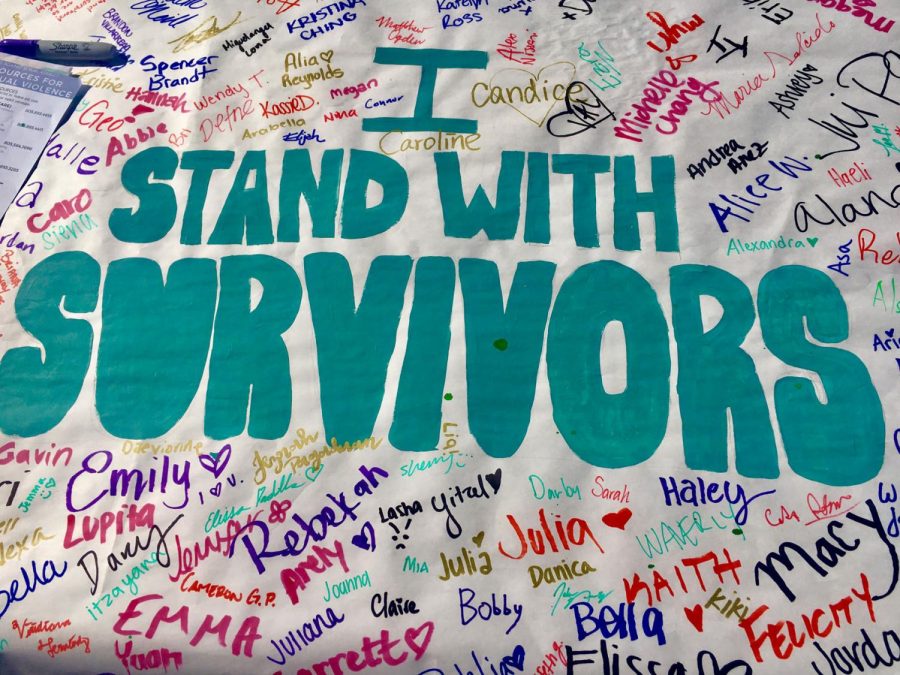Almost $600,000 to expand the quality of service to Rhode Island survivors
Senators Jack Reed and Sheldon Whitehouse and Congressmen Jim Langevin and
David Cicilline announced that Rhode Island Hospital will be receiving
$599,966 from the Department of Justice’s Office of Victims of Crime to
establish Rhode Island’s first SAFE (Sexual Assault Forensic Examiner) program. 
Sierra Shelton
This federal funding will enable Rhode Island to provide equitable access to
quality, trauma-informed medical and forensic care for survivors of sexual
assault, and support community resources that prioritize healing and justice.
“It is absolutely critical that victims of sexual assault receive proper treatment, support, and follow-up care. This federal funding will help Rhode Island launch a SAFE program so that highly-trained sexual assault forensic examiners can deliver a range of vital, professionalized services.
It will ensure evidence is
properly collected and analyzed, thereby reducing trauma for the victim and
strengthening the state’s capacity to effectively prosecute cases,” said
Senator Jack Reed.
“In
partnership with law enforcement and community organizations, Lifespan is
building a new program to provide comprehensive support to survivors of sexual
assault. This federal funding will help survivors get the compassionate care
and access to justice they need to heal,” said Senator Sheldon
Whitehouse, a senior member of the Senate Judiciary Committee and former Rhode
Island Attorney General.
“This
federal funding will enable Rhode Island to substantially expand and improve
access to quality care for survivors of sexual assault, and make sure that they
have every resource they need to properly heal, recover, and pursue justice
following such a heinous crime,” said Rep. Jim Langevin. “I’m
proud to deliver this critical funding alongside my colleagues so that no
survivor of sexual assault goes without the necessary trauma-informed resources
and services.”
“Every
survivor of sexual assault should feel supported throughout their healing
process and ensuring access to trauma-informed care is an integral part of
this,” said Congressman David Cicilline. “RI SAFE is a
much-needed program that will help survivors get the care and justice they need
and deserve.”
“Lifespan is pleased to lead the effort to bring the first sexual assault forensic examiner (SAFE) program to Rhode Island and provide access to quality, trauma-informed medical and forensic care for sexual assault survivors,” said Lifespan Executive Vice President and Chief Nursing Executive Cathy Duquette, PhD, RN.
“This program will lay the foundation for a system of
community supports for survivors and a coordinated statewide response that
promotes healing and justice.”
The Department of Justice grant will be used to establish a mobile, SAFE program in coordination with the Rhode Island Hospital, Hasbro Children's Hospital, Miriam Hospital and Newport Hospital.
Resources will be developed according to the
National Protocol for Sexual Assault Medical Forensic Examinations, and efforts
will aim to create a culture of trauma-informed survivor care that support
patients through training for all emergency department clinicians and staff.
RI-specific training will be provided with content developed and delivered by
local experts, including local rape crisis advocacy groups, RI Attorney
General's Office, local law enforcement, clinicians focused on mitigating
trauma and others.
An
expert SAFE Director, SAFE Educator, and Coordinator will be hired to support
this effort, and a quality assurance system will be developed that maintains
patient confidentiality. Partnerships with community rape crisis advocacy and
law enforcement will also be strengthened to facilitate appropriate
information-sharing, with patient consent, to support survivor healing and
access to justice.
The
RI SAFE Project anticipates serving close to 200 patients annually when fully
operational, and it will be prepared to accommodate a growing need as survivors
of sexual assault learn about these critical services.